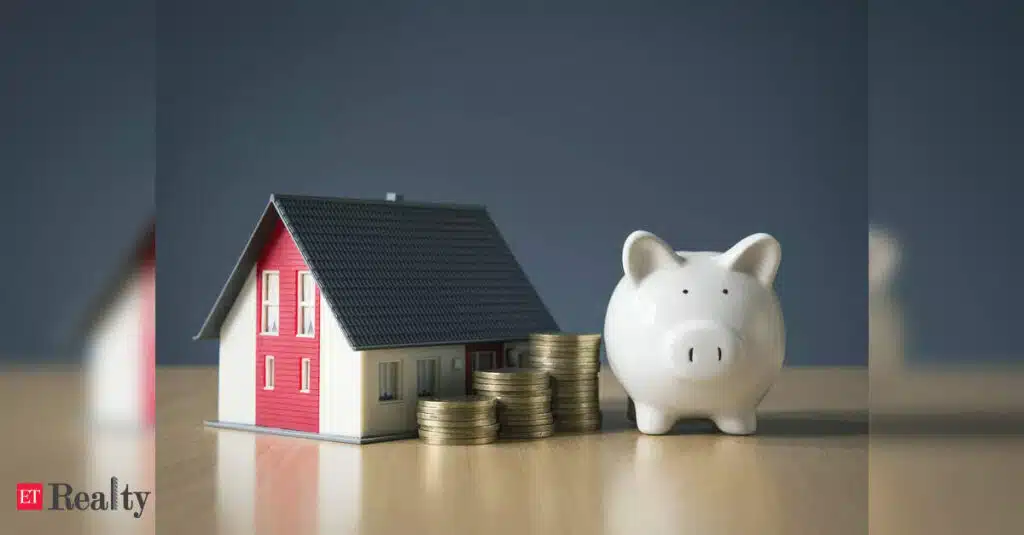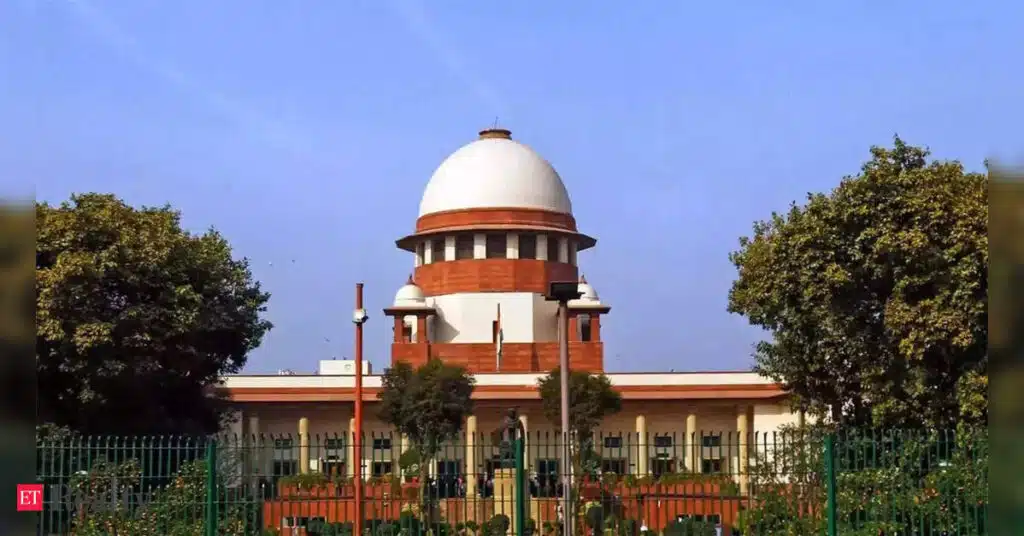Buying a house is one of the biggest financial decisions a person makes. During a recession, the decision becomes even more complex. A slowdown in the economy can create uncertainty in the job market, property values and lending conditions, making many prospective buyers hesitant to move forward. However, for some, a recession may present a unique opportunity to buy property at lower prices and favourable interest rates. This article explores whether buying a home during a recession in India is a smart move or if it’s wiser to wait. Weighing the pros and cons can help you make an informed and confident decision.
What is a recession?
A recession is a period of economic decline marked by a slowdown in GDP growth, rising unemployment, reduced consumer spending and decreased industrial activity. In India, a recession doesn’t follow a strict technical definition like two consecutive quarters of negative GDP growth, but rather refers to a broader economic downturn that affects businesses, households and overall financial confidence.
During a recession, people tend to hold off on big-ticket purchases, including homes, due to income uncertainty and market volatility. While it can create challenges for both buyers and sellers, it also reshapes the dynamics of the real estate market, often leading to price corrections and better deals for serious buyers.
How does a recession impact the real estate market?
A recession can have both positive and negative effects on the real estate sector. On one hand, reduced demand leads to price corrections, discounts and more room for negotiation, especially in the residential segment. Builders may also offer flexible payment plans and other incentives to attract buyers during slowdowns.
On the other hand, economic uncertainty can cause project delays, tighter credit norms and reduced investor confidence. Developers with weak financials may struggle to complete ongoing projects, increasing the risk for buyers. Banks may become more cautious in lending, affecting home loan approvals. Despite these challenges, recessions often create opportunities for well-prepared buyers who are looking to invest long-term or purchase a home for end-use at competitive prices.
Pros of buying a house during a recession
While a recession brings economic challenges, it can also open doors for strategic homebuyers. Here are some of the key advantages of buying a home during a downturn:
1. Lower property prices and negotiation power
During a recession, real estate demand often dips, which leads to price corrections. Sellers, especially developers with unsold inventory, are more likely to offer discounts, price cuts or added benefits such as waived registration fees, free modular kitchens or parking spaces. This gives buyers stronger negotiation power and the chance to secure a good deal that may not be available in a booming market.
2. Lower home loan interest rates
To stimulate the economy, the Reserve Bank of India (RBI) often reduces repo rates during a slowdown. This leads banks and housing finance companies to lower home loan interest rates, making borrowing cheaper. A lower EMI burden over a long tenure can translate into significant savings for homebuyers, especially first-timers looking to enter the market affordably.
3. Less competition in the market
With many potential buyers adopting a wait-and-watch approach, competition in the housing market tends to drop during a recession. This reduced buyer activity gives you more time to evaluate options, explore different locations or projects and make decisions without the pressure of bidding wars or quick bookings.
4. Opportunity to invest long-term
A recession can be an ideal time to invest in real estate with a long-term view. Buying when the market is down often means better appreciation potential once the economy recovers. This is especially relevant for end-users who intend to live in the home or investors seeking stable rental income over time.
Cons of buying a house during a recession
While a recession may offer tempting deals, it’s also a time of increased financial risk and uncertainty. Here are some of the key disadvantages to consider before committing to a home purchase during an economic slowdown:
1. Job security and income uncertainty
One of the biggest risks during a recession is the possibility of job loss or salary cuts. For salaried individuals and self-employed professionals alike, reduced income can make it difficult to commit to long-term financial obligations like home loan EMIs. If your job or business is not stable, buying a home could add pressure rather than security.
2. Possibility of further price drops
Although prices may appear attractive during a recession, there’s always the risk that the market hasn’t bottomed out yet. If prices fall further after you purchase, your property’s value may decline in the short term, leading to potential losses, especially if you need to sell or refinance in the near future.
3. Delayed construction or project risks
Many builders face financial strain during recessions, which can lead to project delays or stalled construction, particularly in the case of under-construction properties. In extreme cases, projects may be abandoned. Buyers must be extra cautious and choose only reputed, RERA-registered developers with a proven track record.
4. Restricted home loan approvals
During periods of economic slowdown, banks and financial institutions become more cautious in lending. Home loan approvals may take longer, and eligibility norms may become stricter. Borrowers with unstable income sources or lower credit scores may face difficulty securing favourable terms or may be denied altogether.
When should you buy a house during a recession?
Buying a home during a recession can be a smart move, but only under the right circumstances. Here’s when it may make sense to go ahead with your purchase:
- You have stable employment and financial security: If you have a reliable job, steady income, and a solid emergency fund (ideally covering 6–12 months of expenses), you’re in a strong position to handle EMIs and other costs, even during economic uncertainty.
- You’re planning for long-term use: If you’re buying a home to live in for several years, not as a short-term investment, the current market fluctuations matter less. Long-term ownership typically smooths out the effects of temporary price dips.
- You find a great deal on a ready-to-move-in property: Ready-to-move homes carry less risk than under-construction properties. If you spot a good-quality, well-located flat or house at a discounted rate, it could be a worthwhile purchase.
- You qualify for a home loan at a low interest rate: If your credit score is strong and you’re eligible for a home loan at a competitive interest rate, you can take advantage of lower EMIs and save significantly over the loan tenure.
- You’re upgrading or downsizing strategically: If you’re moving to a more suitable home, whether for better space, location, or affordability, a recession might offer the right timing to make that shift at lower cost.
When should you wait to buy a house?
While buying a home during a recession can offer attractive opportunities, it’s not the right move for everyone. In the following situations, it may be wiser to hold off on making a purchase:
- Your job or income is uncertain: If you’re in a sector prone to layoffs, facing salary cuts or working as a freelancer or gig worker without steady income, it’s best to postpone home-buying until your financial situation stabilises.
- You lack an emergency fund: Homeownership comes with recurring costs like EMIs, maintenance, repairs and taxes. Without at least 6–12 months of savings, you risk financial strain in case of an emergency.
- You’re hoping to flip or sell in the short term: If you’re buying property purely as a short-term investment, a recession is risky. Property prices could drop further, and selling during or just after a downturn may not yield expected returns.
- You’re not sure where you want to settle: If you’re uncertain about your long-term plans, whether due to work, family or relocation, it’s better to wait rather than tie yourself down to a large financial commitment.
- You’re tempted by an under-construction project with unclear credentials: In times of economic stress, poorly funded developers may delay or abandon projects. Avoid taking chances unless the builder is reputed and the project is RERA-registered with visible progress.
Expert tips for buying a house during a recession
If you’re planning to buy a home during a recession, a cautious and well-informed approach can help you reduce risk and maximise value. Here are some expert tips to guide you:
- Opt for ready-to-move or near-completion projects: These homes carry less construction risk and offer immediate possession. Prioritise projects by reputed developers with a proven delivery track record.
- Verify builder credentials and RERA status: Always choose RERA-registered properties to ensure legal compliance, transparency and accountability. Check for past project delays or disputes linked to the developer.
- Get loan pre-approval: Secure pre-approval from your bank or housing finance company to understand your borrowing limit. It also strengthens your negotiation position with sellers.
- Use the downturn to negotiate better deals: Don’t hesitate to negotiate with builders or homeowners on price, registration charges, add-ons (like modular kitchen or furnishings) or flexible payment plans.
- Lock in low interest rates: If RBI has cut repo rates and banks are offering attractive rates, consider a fixed-rate loan to lock in those savings for the long term.
- Maintain an emergency fund: Even after making the down payment, ensure you have enough savings to cover EMIs and expenses for at least 6 months, especially in an uncertain job market.
- Don’t compromise on location: Choose a property in a well-connected, liveable area. Avoid the temptation of a cheaper home in a poorly developed location that may affect long-term value.
Housing.com POV
Buying a home during a recession is not just a financial decision but also a strategic one. For financially secure buyers, recessions present a rare window to enter the market with greater bargaining power, lower interest rates and less competition. But it’s not a one-size-fits-all scenario. A downturn magnifies every misstep, be it choosing the wrong developer, underestimating future income risks or getting locked into a project with long completion timelines.
What often gets overlooked is that real estate isn’t just about price. It’s about timing, intent and long-term utility. A buyer who is clear about their goals, aware of market risks and patient with investment horizons can benefit significantly from recession-time opportunities. On the other hand, emotionally driven or ill-prepared decisions can lead to long-term stress and regret. Ultimately, it’s not the recession that determines whether it’s the right time to buy. It’s a buyer’s personal financial readiness, risk tolerance and clarity of purpose.
FAQs
Is it better to rent or buy a home during a recession?
Renting offers flexibility and lower upfront costs during uncertain times, while buying builds long-term equity. If your income is unstable, renting is safer. But if you’re financially secure, buying during a recession can be strategic.
Can property values drop significantly during a recession?
Property prices may correct moderately, especially in oversupplied or investor-driven markets. However, significant drops are uncommon in India due to strong end-user demand and cultural preferences for owning homes.
Do property taxes or stamp duty charges change during a recession?
While the base charges remain fixed, some state governments may offer temporary rebates or stamp duty reductions to revive real estate demand during slowdowns. Buyers should watch for such announcements to time purchases smartly.
Is resale property a safer option during a recession?
Yes, resale properties, especially those in established societies, offer immediate possession, transparent pricing and lower risk. They’re often more reliable than under-construction projects during economic uncertainty.
How does recession impact luxury vs. affordable housing segments?
Luxury housing sees sharper slowdowns as buyers postpone big purchases. Affordable and mid-income segments remain more stable, supported by genuine demand and government incentives like PMAY or interest subsidies (when applicable)
| Got any questions or point of view on our article? We would love to hear from you. Write to our Editor-in-Chief Jhumur Ghosh at jhumur.ghosh1@housing.com |




